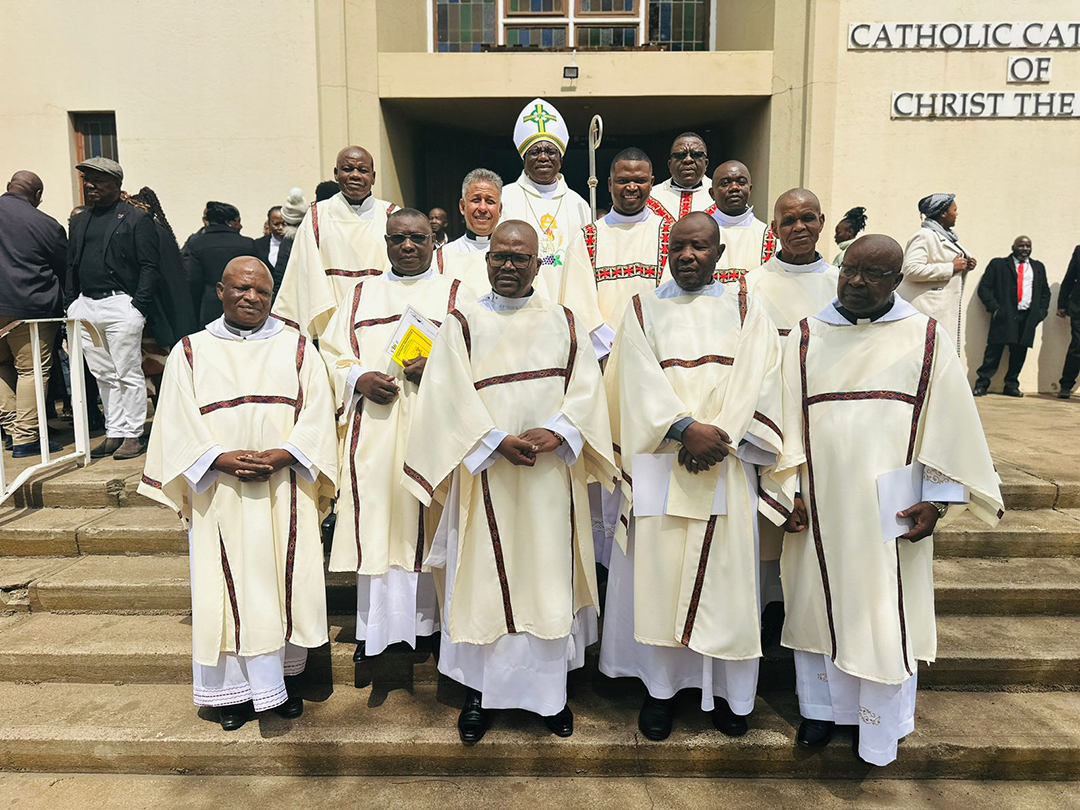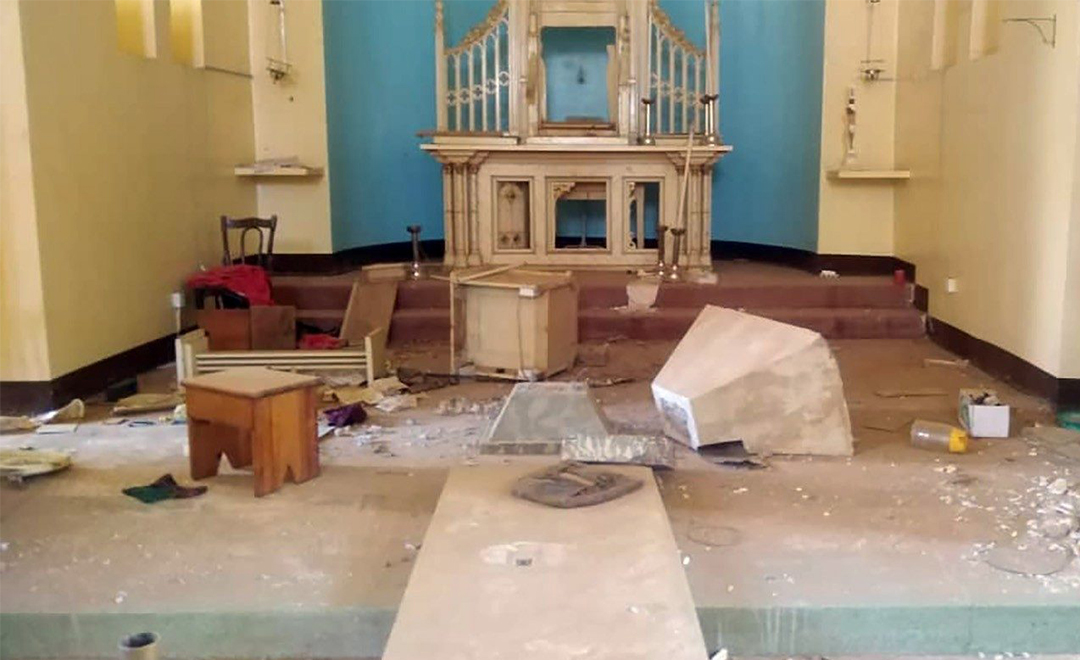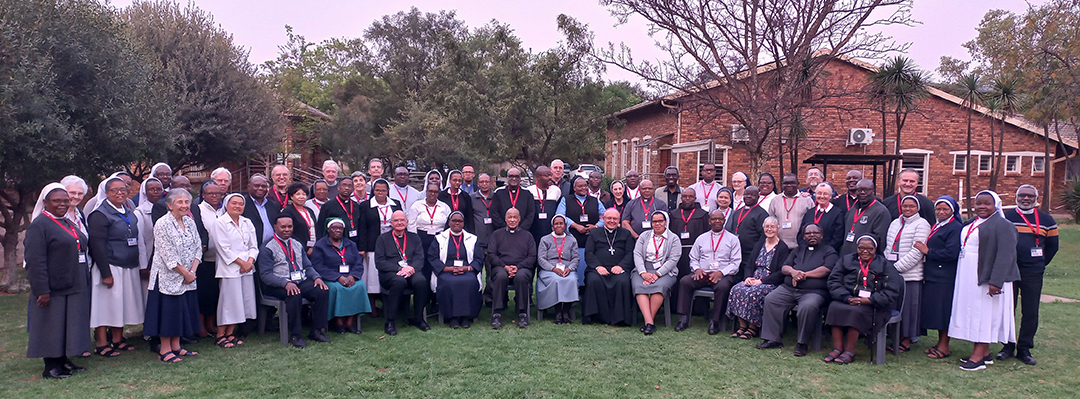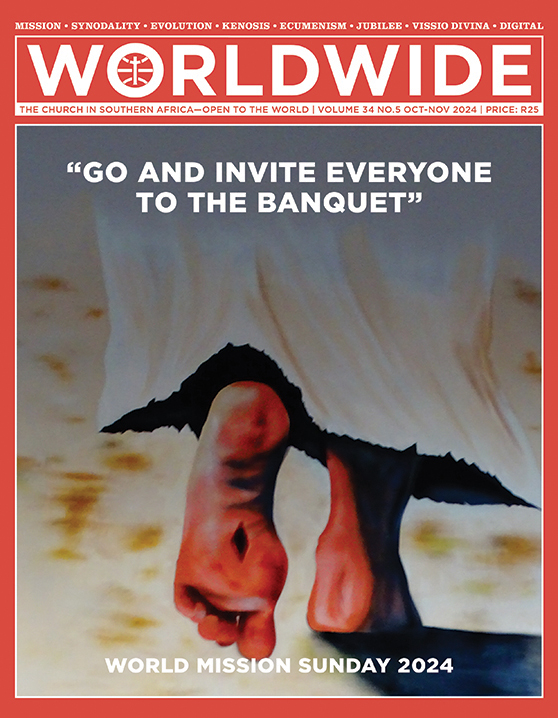
“GO AND INVITE EVERYONE TO THE BANQUET”
The image represents the feet of the Risen Jesus, in motion, showing the wounds of his Passion, yet ready to reach out and invite all to the banquet of his mercy. Likewise, Jesus invites to us to his mission in co-responsibility to bear witness to the power of his resurrection and to bring Jesus’ message of peace and fraternity to the whole world.
RADAR
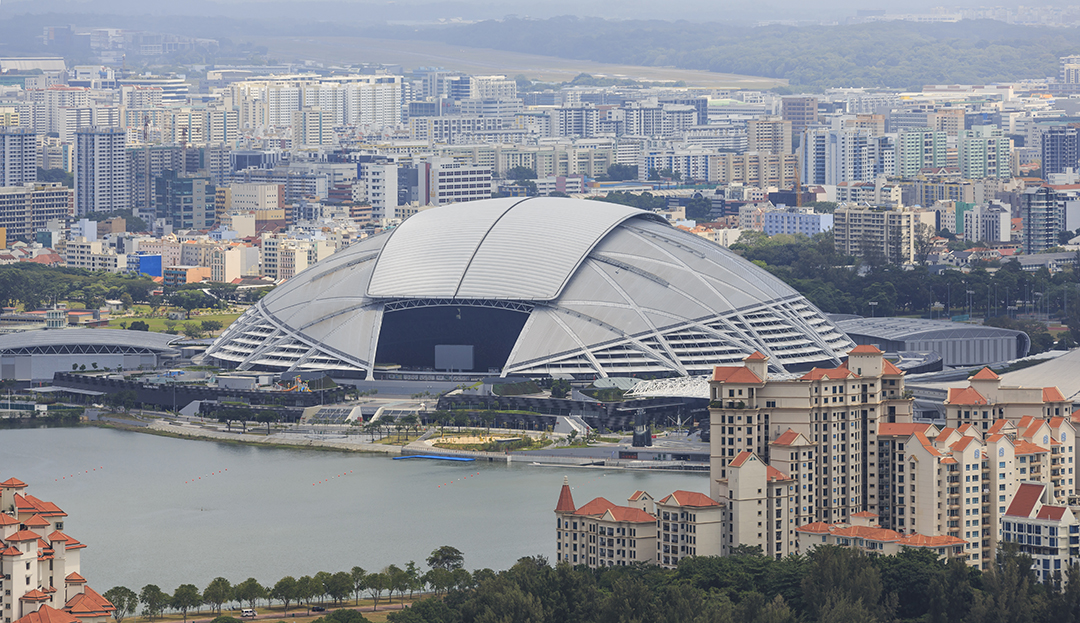
A CALL TO LOVE AND EVANGELIZATION AMIDST WEALTH AND DIVERSITY
The final stop of Pope Francis’ recent 12-day Apostolic Journey across Asia and Oceania was in Singapore, a small and wealthy state, rich also in the diversity of its population.
BY INES SAN MARTIN | VP OF MARKETING AND COMMUNICATIONS, PONTIFICAL MISSION SOCIETIES IN THE UNITED STATES
ON HIS recent visit to Singapore, Pope Francis stated that anything good that exists and endures in this world does so because “in innumerable situations, love has prevailed over hate, solidarity over indifference, generosity over selfishness.”
Celebrating Mass in one of the world’s wealthiest and most modern city-states, the pontiff added that “without this, no one here would have been able to give rise to such a great metropolis, for the architects would not have designed it, the workers would not have worked on it, and nothing would have been achieved.” His visit to this nation follows his time in Timor-Leste, one of the world’s youngest and poorest countries, highlighting the Pope’s mission to embrace all corners of humanity. The Pope’s message in Singapore remains deeply aligned with his core belief that the Church’s missionary call transcends wealth, status, and boundaries.
Addressing some 50,000 people at the National Stadium, Pope Francis delivered a powerful homily, drawing from St. Paul’s letter to the Corinthians: “Knowledge puffs up, but love builds up” (1 Co 8:1). He emphasized that love is the foundation of all good works and that no achievement, no matter how grand, is meaningful without the spirit of love. Reflecting on Singapore’s renowned modern architecture and success, Pope Francis said, “While people may think that these [buildings] are primarily about money, techniques, or engineering ability… what we really find is love, precisely the ‘love that builds up.’” He pointed to the hidden stories of human love behind every accomplishment—of mothers and fathers, workers, and professionals dedicating their lives to the good of others.
The Missionary Legacy of St. Francis Xavier
During his homily, Pope Francis also referred to St. Francis Xavier, the great Jesuit missionary who passed through Singapore on his journeys to spread the Gospel. The Pope said that the saint’s dedication and zeal for evangelization offer a profound example for today’s Church. He quoted a letter St. Francis Xavier wrote to St. Ignatius of Loyola and his first companions, expressing his desire to visit all the universities of his time to cry out “like a madman… [to] those with more learning than charity,” urging them to feel compelled to become missionaries for the love of their brothers and sisters and to “cry out with all their heart: ‘Lord, I am here! What do you want me to do?’” Pope Francis encouraged the faithful in Singapore to adopt this same spirit of missionary zeal, saying, “We too could make these words our own, following his and Mary’s example: ‘Lord, here I am; what do you want me to do?’” The Pope’s message was clear: the Church’s mission to evangelize is as relevant today as it was during St. Francis Xavier’s time, calling for a renewed commitment to spreading the Gospel through love, compassion, and service.
Encouraging Social Justice and Outreach
In his meeting with Singapore’s civil authorities and diplomatic corps, Pope Francis focused on ensuring that progress and development include everyone, particularly the most vulnerable. He acknowledged Singapore’s impressive achievements but warned of the dangers of exclusivity and meritocracy, which can leave the marginalized behind. The Pope urged leaders to continue their efforts to support the poor, elderly, and migrant workers—groups often excluded from economic growth.

“It is important that Singapore has not only prospered economically but has also striven to build a society in which social justice and the common good are held in high regard,” Pope Francis said. “I think in particular of your commitment to improving the quality of life of citizens through public housing policies, high-quality education, and an efficient healthcare system. I hope these efforts will continue until all Singaporeans are able to benefit from them fully.” He emphasized the “risk” of focusing “solely on pragmatism” or placing merit above all, which could lead to the exclusion of “those on the margins from benefiting from progress.” He commended Singaporean policies that support the most vulnerable and expressed hope for ongoing support for the poor, elderly, and migrant workers, emphasizing that these workers should be guaranteed fair wages for their contributions.
Singapore’s migration is complex, with immigration driving economic and population growth. As of June 2024, the country’s population stood at 5.92 million, with 1.77 million being non-residents. Migrants fill labor gaps, increase productivity, and introduce new skills, but integration, housing, and infrastructure continue to present challenges.
The Church manages 54 educational institutions, serving over 46 000 students, and runs 33 social service centres, including hospitals, orphanages, and homes for the elderly.
“Singapore is a mosaic of ethnicities, cultures, and religions living together in harmony, and this word is very important: harmony,” Pope Francis said. He praised the public authorities’ efforts to maintain inclusiveness, cooperation, and dialogue, contributing to the country’s stability and preventing extremism and intolerance.
From the beginning of its presence in Singapore, the Catholic Church has sought to contribute to the nation’s progress, especially in education and healthcare: “This was possible thanks to the spirit of sacrifice and dedication of missionaries and the faithful. Always animated by the Gospel of Jesus Christ, the Catholic community is also at the forefront of works of charity, contributing significantly to humanitarian efforts and managing several healthcare institutions and many humanitarian organizations.”
The Church manages 54 educational institutions, serving over 46,000 students, and runs 33 social service centers, including hospitals, orphanages, and homes for the elderly. These efforts reflect the Church’s commitment to missionary work and promoting the Gospel in a multicultural society.
Source: onefamilyinmission.org

